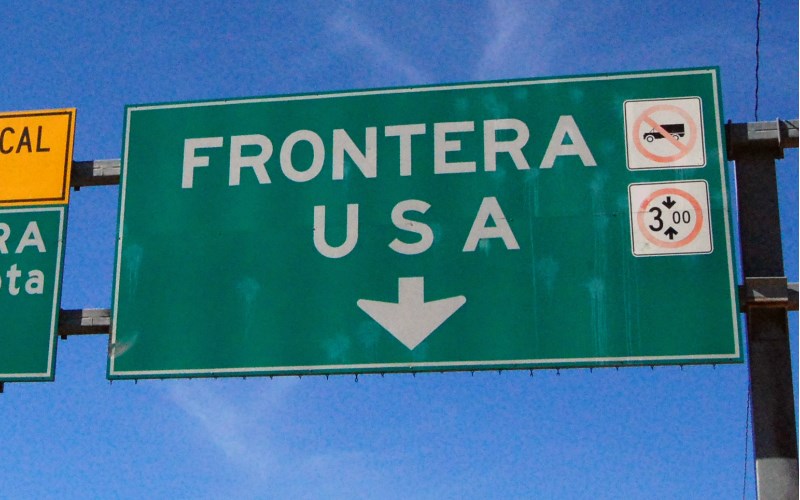Derek Maltz, a former head of the Special Operations Division (SOD) of the Drug Enforcement Administration (DEA), recently traveled to the southern border with Texas Public Policy Foundation’s Border Security Coalition. He tells American Family News that he was able to take a firsthand look at an out-of-control border crisis.

According to Maltz, media and government reports are failing to accurately portray what’s really happening at the border. It is clear to the former DEA exec that the Department of Justice (DOJ), Department of Homeland Security (DHS), and Biden administration are “controlling the messages” that people sitting at home are seeing.
Calling it “babysitting,” he explains that the majority of border patrol resources are being directed to processing migrants. As a result, he says, “morale is crashing pretty low for the border patrol because they signed up to be border security. not migrant care takers.”
Although they are “still working hard,” Maltz contends they could be doing a lot more if they were given the opportunity to actually enforce federal immigration laws.
In fiscal year 2021, over 11,000 pounds of fentanyl was seized by U.S. Customs and Border Patrol (CPB).
Curiously, Maltz reveals that drug seizure numbers like this one will be on the decline.
“It’s not because the cartels aren’t producing like they were [in the past]," he points out. “It’s because the U.S. isn’t using its assets to go out on the line, apprehend the bad guys, and take away the poisonous and deadly drugs.
“Bottom line is the cartels are taking advantage of the overworked border patrol and flooding their sectors with massive amounts of migrants to distract the border patrol away from doing their preferred task of border security,” Maltz explains. “Right now they are consumed with the paperwork duties, which negatively impact U.S. national security as cartels flood the streets with poisonous drugs and their operatives.”
Overworked and getting worse
Title 42 is a Trump-era policy which allowed the United States to quickly expel migrants to their country of origin or border towns in Mexico. It was implemented in March 2020 by the U.S. Centers for Disease Control and Prevention to help contain the coronavirus and is expected to end in late May.
 As of yesterday, at least 10 Democrats “flipped on Biden” to side with the GOP to keep the policy in place.
As of yesterday, at least 10 Democrats “flipped on Biden” to side with the GOP to keep the policy in place.
It's a serious issue, as a former top border patrol official told Maltz that the United States could expect up to 18,000 migrants to close in on the border per day after Title 42 ends.
“Groups are getting larger and larger at the border....dozens over 100 migrants at a time,” he shares.
Once migrants cross the border, Maltz says stash houses are often being used to hide “dozens and dozens” of people in each house. He calls that environment a “humanitarian crisis on steroids.” These houses are essentially safe havens for sexual predators, he explains.
Maltz also warns that many migrants are coming from “high threat areas,” including China, Iran, Africa, Yemen, and more. Known as “gotaways,” at least 62,000 immigrants got past border patrol in the month of March. What’s more, over one quarter million have gotten away in the last six months.
“There are gang members, sexual predators, terrorists, all types of criminals coming into the country," the law enforcement veteran warns. "It’s not just poor people trying to get a better life.”
In just one example of that growing threat, nearly 24 people coming across the southern border in 2021 were on the federal government's terror watchlist.
Depleted yet working hard
According to Maltz, “manpower is depleted, and morale is going down.” He laments that “there appears to be no plan in place for when Title 42 ends — and if there is a plan, it’s not being communicated with leadership and personnel at the border.”
Despite a lack of support from Washington, D.C., and no communications to the general public, Maltz says “the brave men and women of border patrol, the Department of Public Safety, and other law enforcement are working tirelessly.
“Overworked and underappreciated,” he says, “they’re trying their best to keep America safe even as each day gets harder based on their resources and the massive amount of people coming across the border.”







